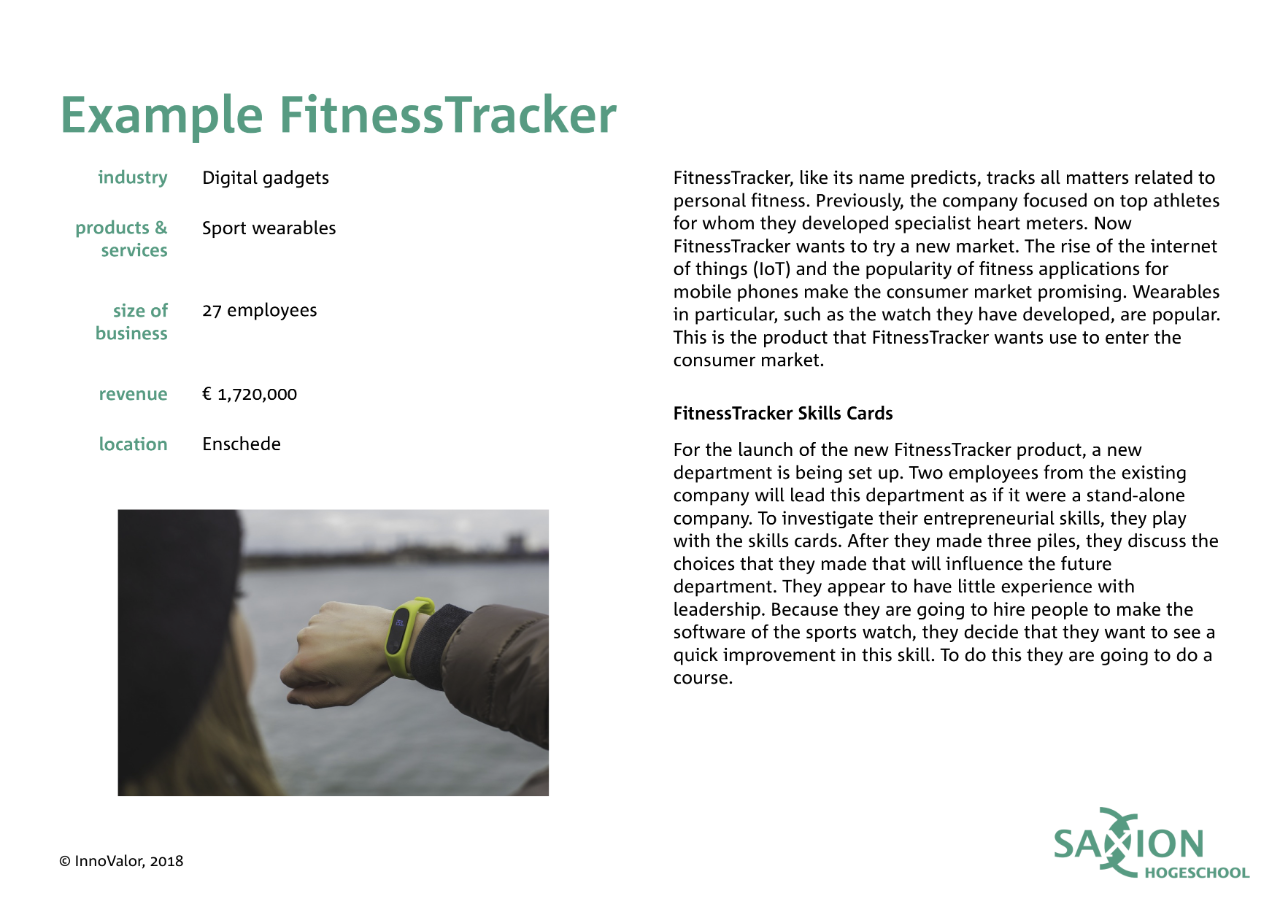Skills Cards

Tips for use
You can use the Skills Cards on your own. They can also be used in a group to serve as the basis for a discussion about entrepreneurial skills. The Skills Cards deal with your personality, so it is advised to use the cards in a setting where your trust the people and you can get honest and correct feedback.
Look at the example of FitnessTracker to see how the Skills Cards can be used.
How to use
With the Skills Cards you investigate whether you have a diverse set of skills needed to start and grow a business. Every skill also has a catch, turning the skill into a hindrance when it is pushed too far. Awareness of these pitfalls will help you to use your skills well.
Step 1 - determine your skills
On each card there is a definition of a skill. Give your skills a score on a scale from 1 to 5. On each card is defined what a score of 1 means and what a score of 5 means. Divide the cards into three stacks according to the scores you provide:
- Good (4 and 5): These are skills that you know you have. You can clearly identify yourself with the description on the card.
- Average (2 and 3): These are skills that you possess to a certain extent, however there is still room for improvement.
- Bad (1): Skills that you do not have. You know yourself and you know this is not your strong suit.
Look at the piles, how is the distribution of the cards? Are many in the 'good' pile, or do you have your work cut out for you?
Step 2 - examine each stack.
Examine the skills from the 'good' pile. Investigate whether the pitfalls apply to you. If they do, have a look if and how you can circumvent them. For example, reflecting sufficiently on your actions or asking for feedback from employees or business partners.
Skills that are on the 'average' pile are partly under control. Research how you can become better in these skills. Step out of your comfort zone and see if you can work on this skill independently.
Now look at the ‘bad’ pile. Can you improve skills from this pile? Think of following a course to get better in this skill or hiring an employee who has this skill.